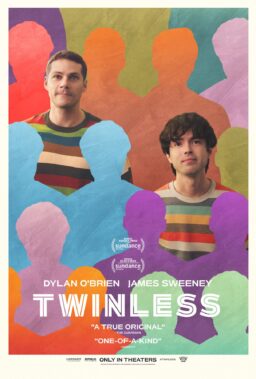Kevin Costner’s new Western is about “what kind of person you are when you look around and no one is watching,” he says. It’s called “Open Range,” it opens Friday, and Costner directs. He won an Oscar for directing “Dances with Wolves,” and again turns to the post-Civil War West for his setting.
“Open Range” is an expansive epic with surprisingly intimate performances, starring Robert Duvall as a man who grazes his cattle on the open range, and Costner as his right-hand man. Riding with them are a younger cowhand (Abraham Benrubi), and a kid (Diego Luna). Passing a new town, they’re threatened by Baxter (Michael Gambon), a rancher who wants to fence out the free-range grazers. And when the kid is shot by Baxter’s men, they meet the local doctor–and particularly the doctor’s sister, played by Annette Bening.
Ten things I learned while talking with Costner about the movie:
1. “If you believe in post-traumatic stress after Vietnam, think of the people who came out of the Civil War and started moving West. There were a lot of sociopaths, bent and broken people, alcoholics–and the fighting went on in one way or another for the next 40 years.”
2. “Charlie, my character, is the equivalent of an alcoholic, except that his problem is violence. He works for a good man who doesn’t look for trouble, and staying with him for 10 years has kept him out of trouble. But notice the way he tells Duvall about what he did in the war: He knew how to kill, he says, ‘It came easier to me than it came to other people. I had the knack’.”
3. Charlie is thunderstruck by his first sight of Sue Barlow (Bening), the doctor’s sister. “Cowboys were not around proper women. They were very shy in the presence. They met prostitutes in the bordellos, but it was said that a cowboy would ride two, three hours in the bulrushes just to look at a little redhead girl yarning on her back porch in a rocking chair. He would just look at her and then ride back again.”
4. “Robert Duvall is a very specific actor, and a natural actor. I wasn’t looking for someone who would play Boss as a character, but someone who would give me a hold-the-screen type Boss. It’s an important performance. Not just a retooling of ‘Lonesome Dove.’ There’s a key scene in the cafe which I think is an AFI moment for Bob. I stand behind him and don’t say a word.”
5. “I’m glad I was able to show the movie to Michael Jeter, before he died in March. He plays the local coot who sides with us. He’s very much in the mode of the Walter Brennans and Ward Bonds. Cooper and Stewart and Wayne, they just wouldn’t act without those guys. They needed them to do the dance. You need a scene where somebody whoops and hollers, and the heroes can’t do that, so you need the whiskery old guy to do the dance.”
6. “I know I’m going to get my gunfight. That’s an obligatory thing, and I was happy to do it and wanted to do it. But I think guns should be loud in a movie, and scare you. The best anti-gun message is that there a result after guns go off. It’s not just people who are hurt. Animals are hurt, and buildings are torn up, and people are scarred for life. A couple of people told me that after the gunfight we should go have a drink and have nice ending. And I said, if you look at the old black and white photos of the old west, if there are people dead in the street, townsfolk gather and look at them and those bodies don’t disappear. Somebody has to pick them up. There’s an aftermath of violence. If a normal person sees it, it will make them sick.”
7. “Charlie has a speech I like, where he tells Boss what’s likely to come down in the gunfight. In a lot of Westerns, everybody just shoots at one another, but Charlie has been an expert killer in the war, and he knows how the other guys are probably going to act.”
8. I referred to Costner’s films “Waterworld” and “The Postman” as box office failures. ” ‘Waterworld’ earned $300 million. Maybe $100 million in the U.S. and $200 million overseas. With ‘The Postman,’ I was disappointed with the European critics. The American critics said what they thought, but overseas they just said what everybody in America thought. That said…I’ve never written a critic about a bad review, or refused an interview with someone who gave me a bad review.”
9. “I like the original movie experience. I have not made a career based on sequels or franchises. We could have made ‘No Way Out 2’ and done ‘Bull Durham 2’ and ‘Tin Cup 2’ and a ‘Bodyguard’ sequel. There’s going to be a sequel to ‘Dances with Wolves’ but I’m not going to be part of it. I’m out there trying to raise the bar and do something new. ‘The Postman’ was that way. I enjoyed it. I can’t turn my back on it, but I understand that others could.”
10.”I don’t consider myself a cutting-edge kind of filmmaker. I think my choices are right down the middle, but hopefully there’s a true character there, and a thread of film literacy. I’m a bit of a hard-head when it comes to running time. I like longer narrative. Always have. It’s not in vogue, but now with this new revenue stream from DVDs what happens is, the same scenes they beg you to cut from the release print, they’re begging you to throw them back in on the DVD. I say, no, I’ve made the movie. Sometimes they put deleted scenes on a DVD, but that’s not me, that’s them.”











